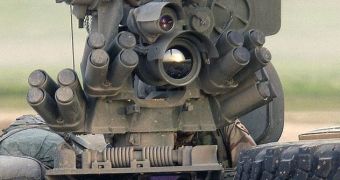A new doctoral thesis elaborated by a student at the University of Gothenburg, in Sweden, proposes an interesting point of view in respect to war and technology. Thus far, the widely-held belief has been that superior technology, especially in terms of offensive power, should be a clear indicator of how long, or short, a war might last. However, former Department of Political Science PhD students Marco Nilsson, now a postdoctoral researcher, suggests that even the most advanced type of military equipment cannot be used as argument to propose that wars will become shorter.
Offensive technology generally refers to the capabilities that states can deploy when starting a war, or when leading the attack. They are the opposite of defensive technologies, which are used to stave off attacks, or to deter them altogether. For example, an atomic bomb can be thought of as being both offensive and defensive. It can wipe out large cities, and cause untold devastation, but if two countries have it, then they are basically using it defensively, deterring the other country from initiating a response out of fear for attack. That is why the Cold War did not escalate further. That and the fact that the bombs Russia and the US have could have destroyed the entire world many times over.
“While this may be seen in some wars where the attacker is clearly superior, it is not true on average. This means that the improved military technology has not resulted in any advantages for the attacking force, at least not in terms of war duration,” Nilsson writes in his paper, which, in essence, revolves around analyzing the correlations between offensive technologies and war durations. For his work, the expert looked at all the wars that appeared between states starting in 1817 and ending in 1992, AlphaGalileo reports.
“I found that, in reality, the potential advantages of attack-oriented technology is limited by for example terrain, technological development, training of military personnel, climate, weather and norms. Due to these limitations, attack-oriented technology normally does not allow a state to run over an enemy as easily as expected. Unless the attacked country collapses right away, the duration of most wars is decided at the negotiation table,” Nilsson adds. “A major problem arises when a state has offensive expectations that do not match what is actually seen on the battlefield. These seemingly unrealistic expectations can for example be a result of a conviction that God will step in and influence the outcome of a war. Another reason may be that a country for some reason expects its offensive ability to soon improve,” he concludes.

 14 DAY TRIAL //
14 DAY TRIAL //